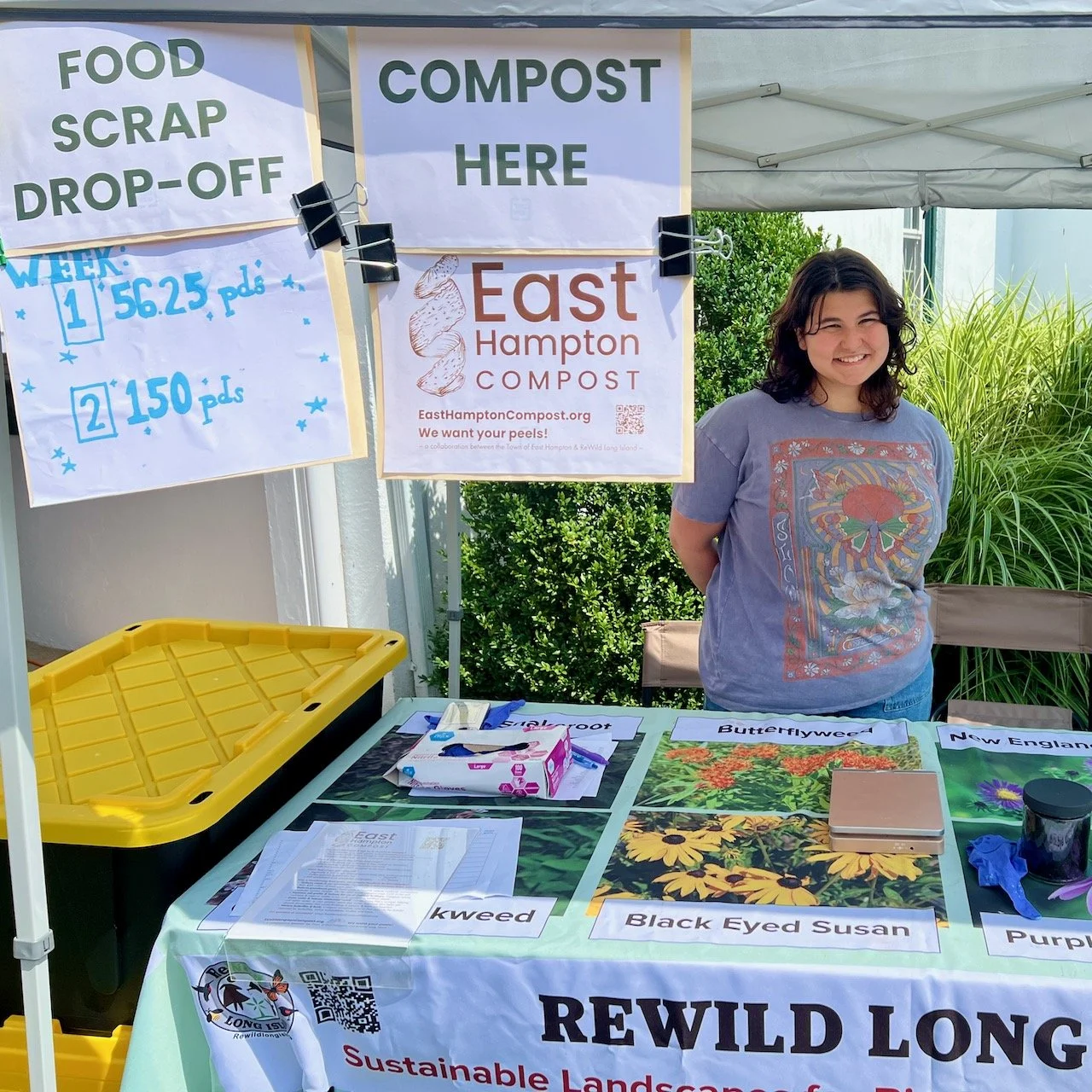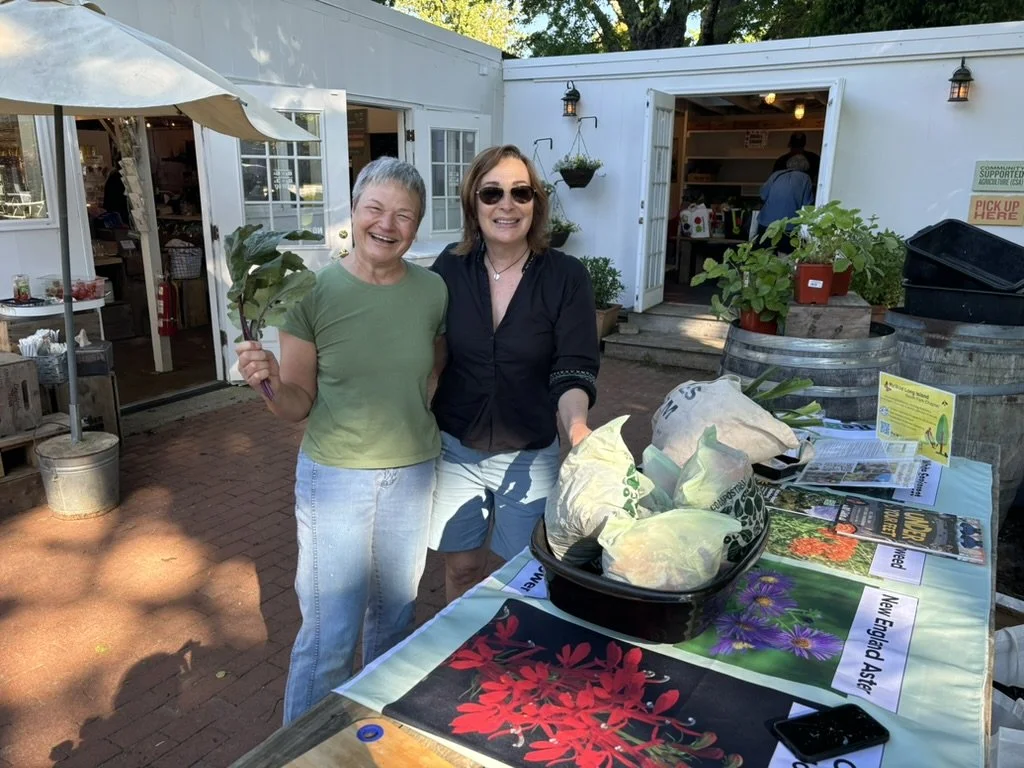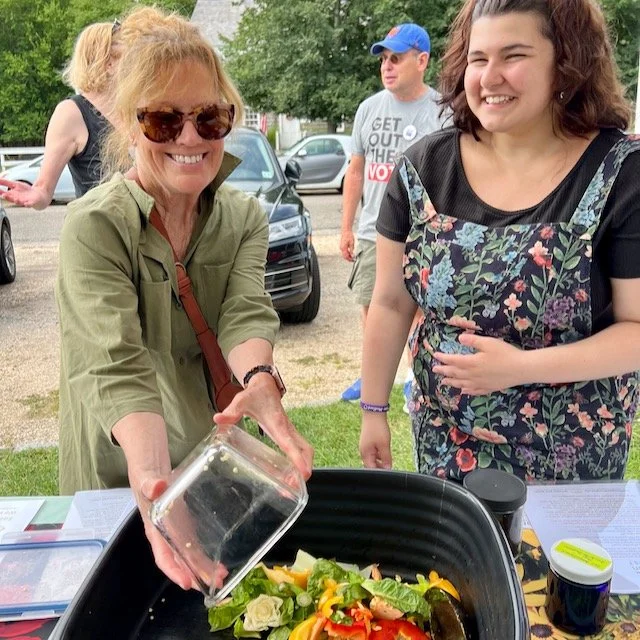Table2Ground™ Hosts Webinar on Community Compost Programs During Food Waste Prevention Week
Food waste is a growing issue affecting the environment, our communities and economies. During Food Waste Prevention Week, in collaboration with East Hampton Compost (EHC), ReWild Long Island and the Town of East Hampton, Table2Ground™ hosted a webinar titled “From Food Scraps to Soil Food: Starting a Drop-Off Program in Your Community.” Attended by those in city and state sustainability offices, regional EPA officers, education program managers, and passionate advocates across the country, the webinar offers a model that can be replicated in diverse settings to foster environmental stewardship and community engagement.
Below are some highlights and key takeaways that provide practical steps to help your community reduce food waste through a dedicated food scrap program.
Background
The story of East Hampton Compost is one of community spirit and grassroots activism. Two years ago, a small group of dedicated individuals saw the immense potential of composting to transform their waste management practices and enrich their local soils. What started as a modest initiative has now blossomed into a community-wide effort, thanks to the unwavering commitment of its volunteers.
Local high school students played a vital role in this initiative, bringing energy and enthusiasm to the project. These young volunteers staffed drop-off locations, engaging with residents and encouraging them to participate in the composting program. They also conducted outreach efforts, spreading the word about the benefits of composting and how it contributes to a healthier environment. Their involvement not only provided them with valuable experience but also fostered a sense of responsibility and environmental stewardship among the youth.
Together with Chief bin-washer Gloria Maroti Frazee, Table2Ground™ hosted a webinar in which Gloria shared valuable insights into the challenges and rewards of piloting an all-volunteer initiative. Her journey has been one of perseverance and dedication, overcoming numerous obstacles to make the program a success. She spoke passionately about the logistical challenges of setting up and maintaining drop-off locations, the importance of community engagement, and the ongoing efforts to educate residents about the benefits of composting.
Outcomes
Entering its second year, East Hampton Compost is expanding its reach and impact within the community. With the support of ReWild Long Island and the Town of East Hampton, the program is poised to grow even further. These organizations' collaborative efforts have been instrumental in providing the necessary resources and support to sustain and expand the composting initiative.
The program recently extended to a larger area of the Town of East Hampton with a drop-off location in Amagansett and, thanks to dedicated composter Christine Lefler and two ReWild Summer Program interns, Griffin and Maya, another location just opened in Montauk. They expect to double the volume of food scraps composted, and, more importantly, engage the community in reducing food waste and forwarding the concept of transforming food scraps into soil food. Favorite responses from participants include, “I never realized how much food I was wasting until I started saving it,” and, “Now that I’m separating out my food scraps, I have so much less trash.”
Table2Ground™'s very own Marjorie Spitz also visited the Amagansett drop-off to witness firsthand the impact of their work. Marjorie spent time with the volunteers, learning about their processes and challenges, and offered her expertise in waste management solutions. Her visit underscored the importance of community support and the potential for these grassroots efforts to inspire broader changes in waste management practices.
Why a Food Scrap Program?
Food scrap programs divert organic waste from landfills and incinerators, reducing greenhouse gas emissions and creating valuable compost that can enrich soil and support local agriculture. Implementing such a program can help communities achieve sustainability goals, save money on waste disposal, and promote environmental stewardship among residents.
How to Create a Food Scrap Program?
Implementing a food scrap program in your community can significantly reduce waste and promote sustainability. Here’s a brief overview of the essential steps discussed in the webinar:
Assessment and Planning: Understand the current waste streams in your community. Conduct waste audits to identify the volume and type of food scraps being generated.
Community Engagement: Engage residents, businesses, and local organizations from the outset. Educational campaigns and workshops can raise awareness about the benefits of food scrap programs and encourage participation.
Infrastructure Development: Secure funding and invest in the necessary infrastructure such as compost bins or onsite commercial food waste machines.
Policy and Regulation: Work with local governments to establish policies that support food scrap collection and composting. This could include ordinances that require businesses and households to separate food waste.
Program Implementation: Start with a pilot program to refine logistics and address any challenges. Gradually expand the program based on feedback and lessons learned.
Monitoring and Evaluation: Regularly monitor the program’s performance and make data-driven adjustments. Collect feedback from participants to continuously improve the program.
For a detailed walkthrough on how to set up a successful food scrap program, watch the full webinar recording here.
By implementing a food scrap program, your community can take a significant step towards sustainability, reducing waste, and creating valuable compost. We invite you to join the movement towards zero waste and sustainability. Stay connected with Table2Ground™ for more tips, resources, and events aimed at reducing food waste and promoting environmental stewardship in your community.
About Table2Ground™
Table2Ground™ provides innovative food waste management solutions to help businesses achieve their zero waste goals.
We have two in-vessel on-site solutions that will reduce food waste by 80-90% in a 24-hour cycle: Our Grounder™ Composter and our Grounder™ Aerobic Biodigester. The output is either pre-compost or a soil conditioner, depending upon which process is preferred. In addition, this process reduces the need to haul the waste off-site and of course, reduces environmental impact. It’s an effective way to be cost-efficient while achieving your goals.
If you haven’t connected with us already, schedule an appointment here or contact info@table2ground.com or 332-266-0090 to learn more about how we can support your efforts.
For more resources and information on waste reduction, visit our website at Table2Ground™.


![240404vApril4-2pm_FoodWasteWeekWebinar_EHC_MarjorieT2G[1]_pages-to-jpg-0008.jpg](https://images.squarespace-cdn.com/content/v1/629e27e070eb8939783a3a2c/1722328168525-XN15ODOK1GJ7HL9XVDHN/240404vApril4-2pm_FoodWasteWeekWebinar_EHC_MarjorieT2G%5B1%5D_pages-to-jpg-0008.jpg)
![240404vApril4-2pm_FoodWasteWeekWebinar_EHC_MarjorieT2G[1]_pages-to-jpg-0009.jpg](https://images.squarespace-cdn.com/content/v1/629e27e070eb8939783a3a2c/1722328048401-HKVXT8Y9JKUA3UWV08CR/240404vApril4-2pm_FoodWasteWeekWebinar_EHC_MarjorieT2G%5B1%5D_pages-to-jpg-0009.jpg)
![240404vApril4-2pm_FoodWasteWeekWebinar_EHC_MarjorieT2G[1]_pages-to-jpg-0031.jpg](https://images.squarespace-cdn.com/content/v1/629e27e070eb8939783a3a2c/1722328049674-A10XJ6XQS4BHGE9OKKIV/240404vApril4-2pm_FoodWasteWeekWebinar_EHC_MarjorieT2G%5B1%5D_pages-to-jpg-0031.jpg)
![240404vApril4-2pm_FoodWasteWeekWebinar_EHC_MarjorieT2G[1]_pages-to-jpg-0032.jpg](https://images.squarespace-cdn.com/content/v1/629e27e070eb8939783a3a2c/1722328066977-4JSPJZQ7Q1II4QRW4WI6/240404vApril4-2pm_FoodWasteWeekWebinar_EHC_MarjorieT2G%5B1%5D_pages-to-jpg-0032.jpg)
![240404vApril4-2pm_FoodWasteWeekWebinar_EHC_MarjorieT2G[1]_pages-to-jpg-0033.jpg](https://images.squarespace-cdn.com/content/v1/629e27e070eb8939783a3a2c/1722328069353-4VZRA2KHRYSR5WGEHB89/240404vApril4-2pm_FoodWasteWeekWebinar_EHC_MarjorieT2G%5B1%5D_pages-to-jpg-0033.jpg)
![240404vApril4-2pm_FoodWasteWeekWebinar_EHC_MarjorieT2G[1]_pages-to-jpg-0035.jpg](https://images.squarespace-cdn.com/content/v1/629e27e070eb8939783a3a2c/1722328168341-M1BQPJQ2XUUW9H9H8QO5/240404vApril4-2pm_FoodWasteWeekWebinar_EHC_MarjorieT2G%5B1%5D_pages-to-jpg-0035.jpg)


